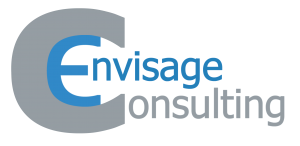Debt Agreement Document
Debt Agreement Document: What It Is and How It Works
If you’re struggling with debt, it can be overwhelming to think about your options for managing it. One potential solution is a debt agreement document, which can help you negotiate with your creditors and work out a repayment plan that fits your budget. In this article, we’ll take a closer look at what a debt agreement document is, how it works, and the pros and cons of using one to tackle your debt.
What Is a Debt Agreement Document?
A debt agreement document is a legally binding contract between you and your creditors that outlines the terms of your repayment plan. It’s typically used when you can’t afford to pay back your debts in full but want to avoid bankruptcy. By entering into a debt agreement document, you agree to repay a portion of your debts over a set period of time, usually three to five years.
To be eligible for a debt agreement document, you must meet certain criteria. You must have unsecured debts (such as credit card debts or personal loans) totaling between $10,000 and $250,000, and have a regular income. You also cannot have filed for bankruptcy or a debt agreement in the past ten years.
How Does a Debt Agreement Document Work?
To set up a debt agreement document, you’ll need to work with a debt agreement administrator, who will assess your eligibility and help you negotiate with your creditors. The administrator will prepare a proposal that outlines the terms of your repayment plan, including the amount you’ll repay each month, the length of the repayment period, and any fees or charges.
Once your creditors agree to the proposal, you’ll start making payments according to the agreed-upon schedule. You’ll make one payment to the administrator, who will distribute the funds to your creditors on your behalf. During the repayment period, your creditors cannot take legal action against you or contact you about your debts.
At the end of the repayment period, any remaining debts are considered discharged, meaning you’re no longer liable for them. However, keep in mind that a debt agreement document will have a negative impact on your credit score, and may make it difficult to obtain credit in the future.
Pros and Cons of Using a Debt Agreement Document
Like any financial solution, a debt agreement document has its advantages and disadvantages. Here are some to consider:
Pros:
– Avoids bankruptcy: A debt agreement document can be a viable alternative to filing for bankruptcy, which can have serious long-term consequences.
– Affordable repayments: The repayment plan is based on what you can afford, making it easier to stay on top of your debts.
– Creditor cooperation: Your creditors are more likely to agree to a debt agreement document than other debt management options, since it ensures they’ll receive at least some of the money owed to them.
– Legal protection: Once your creditors agree to the proposal, they cannot take legal action against you or contact you about your debts.
Cons:
– Negative credit impact: A debt agreement document will appear on your credit report for up to seven years, and may make it harder to get approved for credit in the future.
– Limited eligibility: You must meet certain criteria to be eligible for a debt agreement document, including having unsecured debts between $10,000 and $250,000.
– Potential fees: The debt agreement administrator may charge fees for their services, which can eat into the money you’re repaying to your creditors.
– No forgiveness of debt: While a debt agreement document can help you reduce your debt burden, you’re still required to repay a portion of what you owe.
Conclusion
A debt agreement document can be a useful tool for managing your debts and avoiding bankruptcy. It’s important to carefully consider the pros and cons before entering into a debt agreement, and to work with a reputable debt agreement administrator who can help you negotiate with your creditors and set up a repayment plan that fits your budget. With the right approach, a debt agreement document can help you regain control of your finances and move toward a debt-free future.

Recent Comments